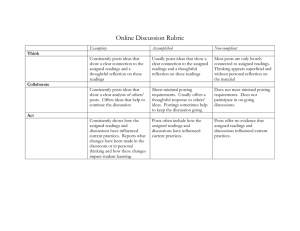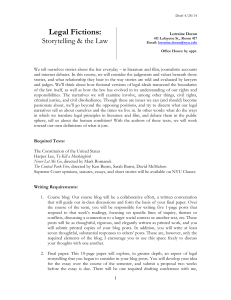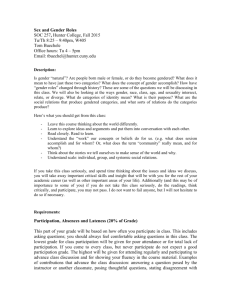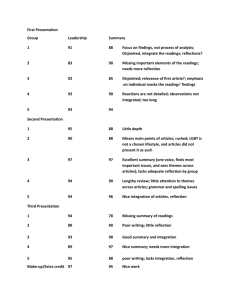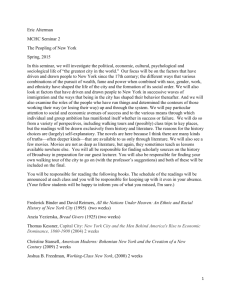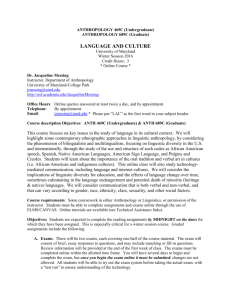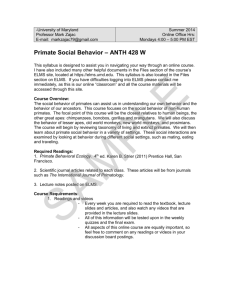Econ Reading Reflections
advertisement
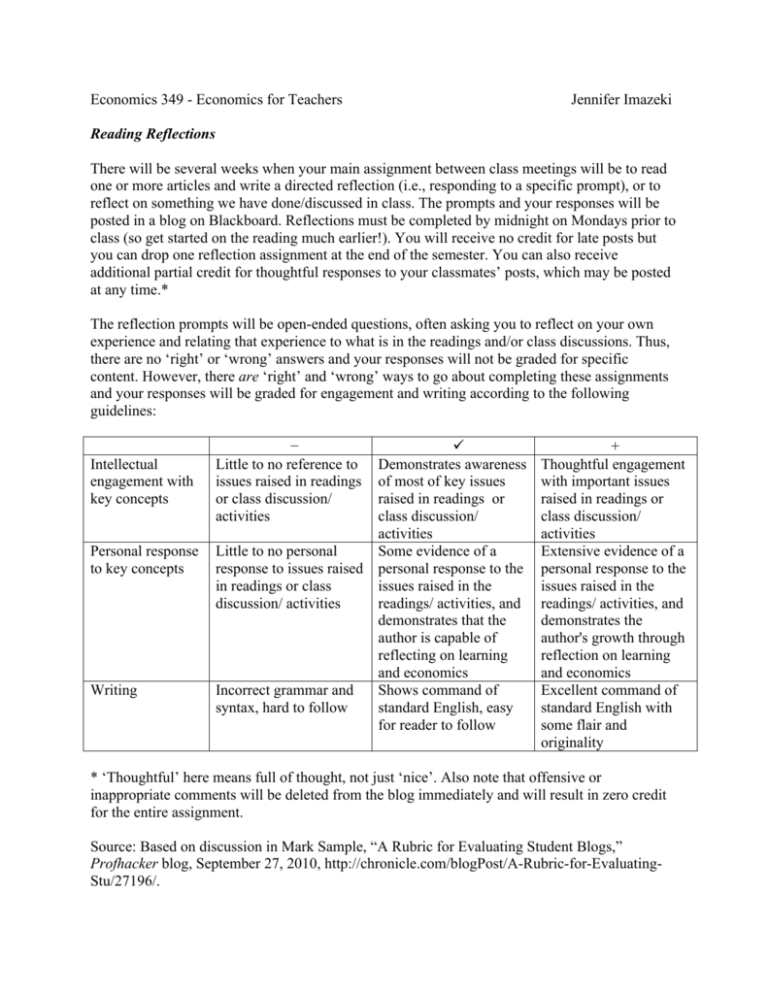
Economics 349 - Economics for Teachers
Jennifer Imazeki
Reading Reflections
There will be several weeks when your main assignment between class meetings will be to read
one or more articles and write a directed reflection (i.e., responding to a specific prompt), or to
reflect on something we have done/discussed in class. The prompts and your responses will be
posted in a blog on Blackboard. Reflections must be completed by midnight on Mondays prior to
class (so get started on the reading much earlier!). You will receive no credit for late posts but
you can drop one reflection assignment at the end of the semester. You can also receive
additional partial credit for thoughtful responses to your classmates’ posts, which may be posted
at any time.*
The reflection prompts will be open-ended questions, often asking you to reflect on your own
experience and relating that experience to what is in the readings and/or class discussions. Thus,
there are no ‘right’ or ‘wrong’ answers and your responses will not be graded for specific
content. However, there are ‘right’ and ‘wrong’ ways to go about completing these assignments
and your responses will be graded for engagement and writing according to the following
guidelines:
Intellectual
engagement with
key concepts
Personal response
to key concepts
Writing
ü
Demonstrates awareness
of most of key issues
raised in readings or
class discussion/
activities
Little to no personal
Some evidence of a
response to issues raised personal response to the
in readings or class
issues raised in the
discussion/ activities
readings/ activities, and
demonstrates that the
author is capable of
reflecting on learning
and economics
Incorrect grammar and
Shows command of
syntax, hard to follow
standard English, easy
for reader to follow
−
Little to no reference to
issues raised in readings
or class discussion/
activities
+
Thoughtful engagement
with important issues
raised in readings or
class discussion/
activities
Extensive evidence of a
personal response to the
issues raised in the
readings/ activities, and
demonstrates the
author's growth through
reflection on learning
and economics
Excellent command of
standard English with
some flair and
originality
* ‘Thoughtful’ here means full of thought, not just ‘nice’. Also note that offensive or
inappropriate comments will be deleted from the blog immediately and will result in zero credit
for the entire assignment.
Source: Based on discussion in Mark Sample, “A Rubric for Evaluating Student Blogs,”
Profhacker blog, September 27, 2010, http://chronicle.com/blogPost/A-Rubric-for-EvaluatingStu/27196/.
Examples of reflection prompts:
For week 5: Accountability – Read Freaknomics chapter 1, accountability
After completing the assigned readings, create a new post with your responses to the following
questions:
What do you think about the increased use of standardized testing as a means of measuring
student performance and 'holding schools accountable'? Should we be worried about cheating on
these tests? Are there alternative measures/systems that you think would be better? Do we even
need to HAVE accountability systems?
Also note here any questions or thoughts that came up as you read the Freakonomics chapter.
Please see the instructions and rubric for a reminder about how these posts will be graded. Also,
feel free to read, rate and respond to your classmates' posts.
Also for week 5 - Use this blog to post at least one discussion question about the public school
system in California (finance, accountability, achievement, students, teachers, etc.). Note that
'discussion question' means questions that go beyond simple facts. 'Why' and 'how' are often
good starters for discussion questions; simple factual questions ('what', 'how much') generally are
not.
Week 10 - What do you believe the role of the government is/should be? For example, are there
services that the government provides that you believe should/could be provided by the private
sector (or services that are NOT provided by the government that you think should be)? What
should be the primary goal(s) of government policy? When is government intervention in
markets, and people's lives, justified and when is it NOT?
In your response, please reflect on where your beliefs about government come from. For
example, are they based on things you learned in school? The way your parents raised you?
Other life experiences?
Please see the instructions and rubric for a reminder about how these posts will be graded. Also,
feel free to read, rate and respond to your classmates' posts.
